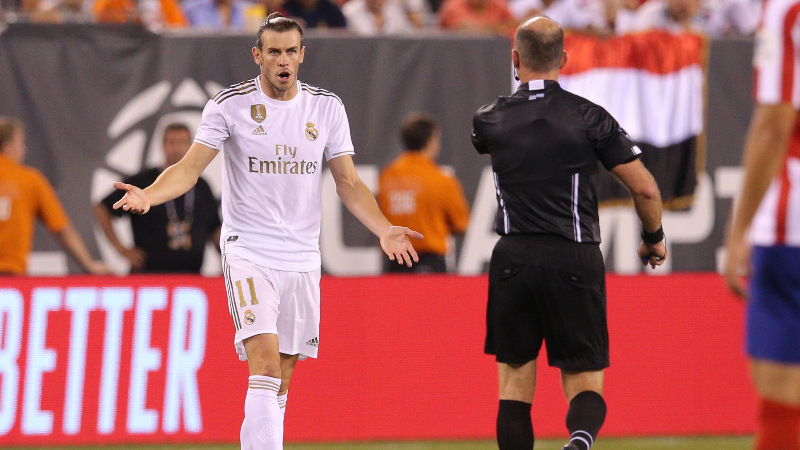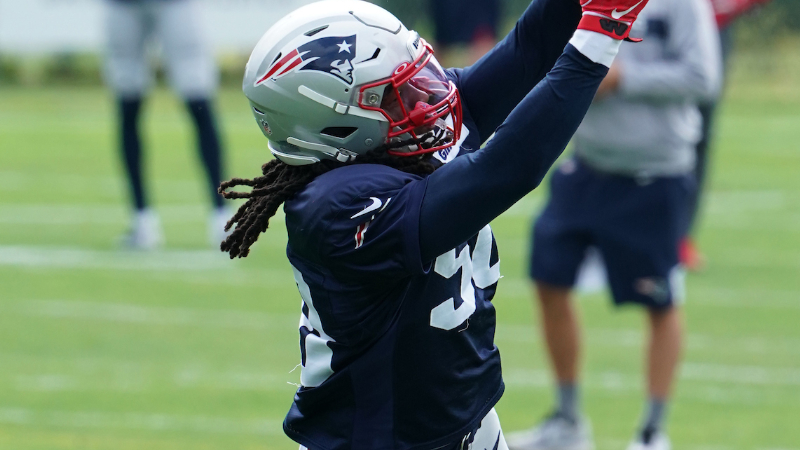To say Bill Belichick is the NFL’s toughest man to figure out would be a huge understatement.
Notoriously grumpy and tight-lipped with the media, the New England Patriots head coach remains a total mystery at age 67. And while some of Belichick’s players readily admit there is a softer, funnier side to their boss, there also are plenty of stories that paint the future Hall of Famer as, well, a jerk.
That brings us to Ted Johnson, who played 10 seasons for the Patriots, five of which came under the iron fist of Belichick.
[nesn_embed_the_score team=”patriots”]
During an appearance Wednesday on 98.5 The Sports Hub’s “Toucher & Rich,” Johnson explained how Belichick’s cut-throat mentality often comes at the expense of personal relationships with his players.
“I know he can do bad-guy type of things, where it’s inappropriate, crossing the line, where you’re kind of dehumanizing the guy, to some degree,” said Johnson, who added Belichick’s coldness raises to a level higher than that of his peers. ” … I just don’t think other coaches have that killer mentality where they’ll do whatever it takes — step on a guy’s throat, cross boundaries — to do anything it takes to win. I just don’t think other coaches are wired that way. I think Bill is. And Bill makes no apologies. … I don’t know how many friends he’s made doing it the way he has.”
(Fast forward to the 20-minute mark in the clip below to hear Johnson talk about Belichick.)
Toucher & Rich: Ted johnson In-Studio (Hour 2) https://t.co/wyw9nQy7Dw @toucherandrich
— 98.5 The Sports Hub (@985TheSportsHub) September 18, 2019
Johnson did say that Belichick will reach out to players and admit when he’s wrong but that the coach’s motivations for doing so are somewhat questionable.
“If there’s something that he’s done to a player, where the player has a right to be upset, that potentially can expose him … Malcolm Butler, he knows what happened, he knows exactly why he was benched (in Super Bowl LII),” Johnson said. “Malcolm Butler hasn’t said anything, partly because he’s still active in the NFL … But what Bill will do, and he did this in the case of Malcolm Butler, is he reached out to Malcolm Butler. Malcolm Butler and Bill Belichick did connect after that Super Bowl. … They worked things out, Bill smoothed things over with Malcolm.”
While Johnson believes Belichick sometimes is genuine in his remorse, the three-time Super Bowl champ also believes Belichick oftentimes is looking to cover himself and prevent mutiny or public ridicule.
“It’s definitely, maybe, a strategy of his,” Johnson said.
This bit from Johnson is particularly fascinating:
“In my case, when I had my issues with him in 2002, it was not good. It was not a very good working environment,” Johnson said. “It was very personal. It was a terrible time for me because I was just not mentally, 100 percent focused. I was just down on going to work and playing at the level I wanted to play at, and Bill saw that. Bill came to me Week 6 or 7 and extended the proverbial olive branch, if you will, and said, ‘Ted, we gotta work this out.’ He gave me some compliments, gave me some nice feedback on how I played. And it was like he was human at that moment, and it was the first time I’d ever seen that side of him, where he was holding himself accountable, wanting to work things out, it wasn’t going well between us.
” … And that was it. I was a captain the next year, and I didn’t have any problems with Bill the rest of my career, because he did that. Bill holding himself accountable to the player and coming back, looping back around eventually to smooth things over with that player, is kind of a powerful exchange, if you will. And, my feeling is, that’s what happened with Malcolm Butler, because Malcolm Butler could potentially spill the beans and answer the question we’re all dying to know.”
Added Johnson: “He’s got too much power. Bill Belichick is the greatest coach to ever coach, he’s just got a lot of power and he’s got tentacles and is far-reaching in his power. So, if you criticize Bill, players feel like there’s a price to pay for that.”
Johnson retired from football after the 2004 season, so the bulk of his experience with Belichick came nearly two decades ago. The 46-year-old believes Belichick has softened in the year’s since, with Butler’s benching against the Philadelphia Eagles — and the subsequent lashing from Patriots fans — serving as a major turning point.
“After that, it was such a public … on the biggest stage, showing everybody what he’s capable of doing,” Johnson said. “So, the whole world saw it, and the fans, for the first time, questioned his decision-making. … It had to impact him in some way. You just saw a more likable, more engaging, more approachable type of head coach after that, with the players. It just seems that he’s changed his attitude.”
Johnson’s testimony adds more color to a mostly grey portrait of a man who continues to defy explanation.
Has Belichick given fans reasons to believe he’s a genuinely good person at his core? Sure. However, there’s just as much evidence to suggest Belichick also has a ton of rot in his personality — then again, who doesn’t?





